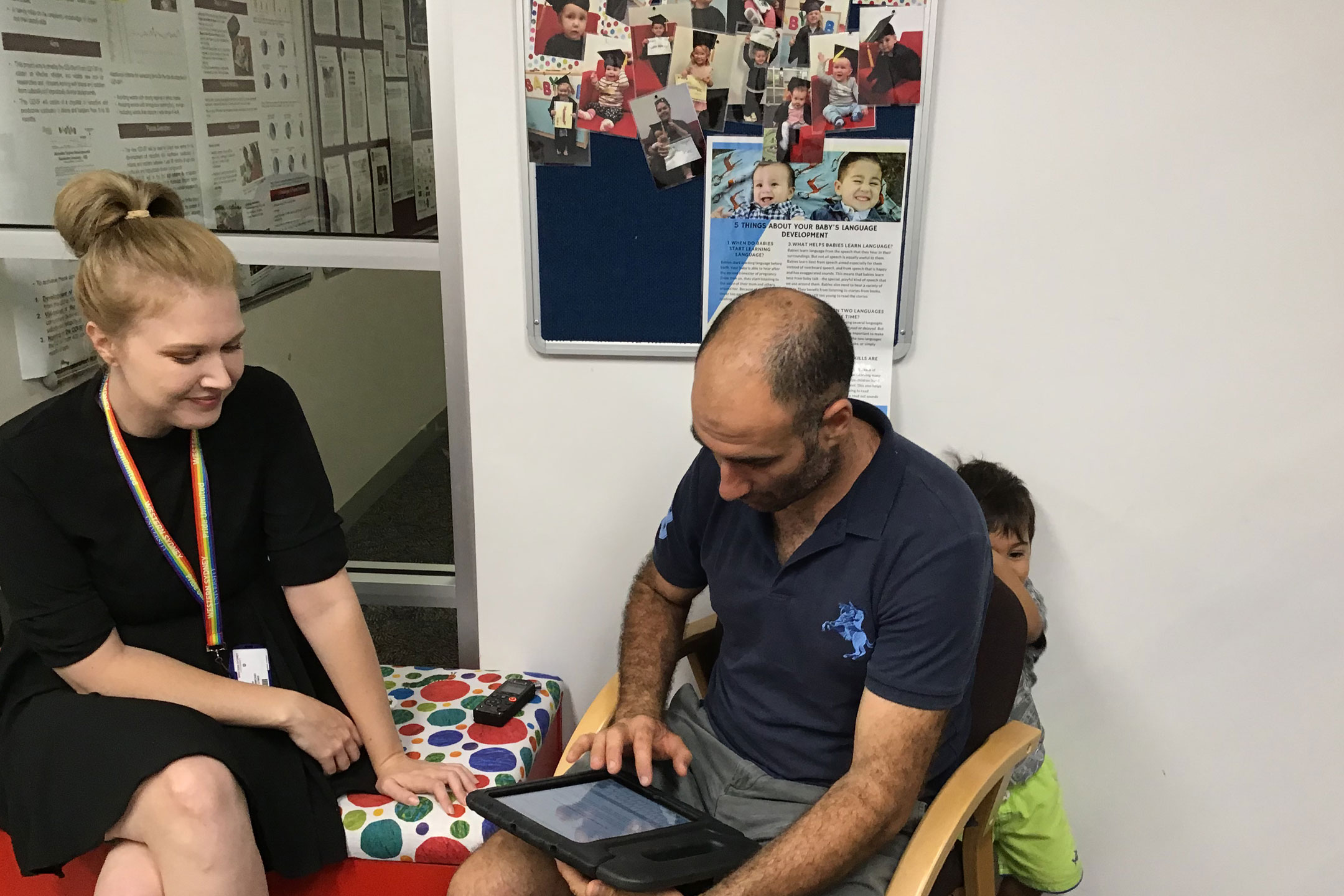
21 Nov What words does your child know?
Want to find out how your toddler’s vocabulary compares to their peers? Then this Australian study, which is building a picture of children’s early vocabulary, needs your help!
Researchers welcome parents of children aged 8 to 36 months, to join a national study of children’s early vocabulary. This online study aims to find out about how Australian children typically progress in learning to say and understand words.
The study is being run by a team of researchers from Western Sydney University and speech pathologists from Liverpool Hospital (NSW). The study is inviting parents of children aged 8 to 36 months to complete a brief checklist containing words that their child says and/or understands:
Study participants will help build a picture of vocabulary development in Australian children
Chief study investigator Associate Professor Caroline Jones, from Western Sydney University, says participants will help build a picture of vocabulary development in Australian children. This will help make resources to support parents to learn more about how children learn to communicate.
“We already have a really good checklist of kids’ first words, called the Australian English Communicative Development Inventory (OZI), which was developed in our BabyLab research centre at Western Sydney University.” A/Prof Jones says. “From that we’ve recently made a shorter checklist (the OZI Short Form) which is more practical for parents and professionals. It’s this shorter, practical checklist which we are inviting parents to complete right now.”
Spoken language develops strongly in most children when they experience warm, responsive interactions with parents and caregivers
“Spoken language develops strongly in most children when they experience warm, responsive interactions with parents and caregivers”, says Dr Christa Lam-Cassettari, Leader of the BabyLab. “But children do develop at different rates. We still don’t know enough about the range of paths and timing that Australian children follow. So we are very keen to invite parents of children at all study ages (8-36 months), both girls and boys, and children growing up in English speaking households, as well as children who have more than one language at home”, says Dr Lam-Cassettari.
A/Prof Jones says that in the longer term, based on the large dataset from the study, it will be easier for parents and professionals to know if a child is on track with their language development, or starting to fall behind their age-peers. “Speech and language difficulties are one of the most common developmental disabilities in children”, says A/Prof Jones. “Sometimes there is no obvious cause, and children can be affected whatever their social, cultural or linguistic background.”
Over 200 parents have completed to date.
 To take part in the study, parents are asked to complete a 10-15 minute online survey. Data are stored anonymously, without names.
To take part in the study, parents are asked to complete a 10-15 minute online survey. Data are stored anonymously, without names.
All participants automatically receive a report of their child’s current vocabulary on the checklist to their email address at completion. This snapshot is a nice addition to a baby milestones book as a keepsake. If you have concerns about your child’s language development, it is recommended that you speak with a GP or speech pathologist – take the report along!
You can find a local speech pathologist either by calling your local community health centre, speaking with your GP or hopping online. Private speech pathology services can be located either using an online search engine or accessing the Speech Pathology Australia website and using the ‘find a speech pathologist’ function.
For more details, please email babylab@westernsydney.edu.au
The Australian Research Council has contributed funding to the study.
Image: WSU student Hollie Hammond helps a father complete the OZI-SF, at MARCS BabyLab

